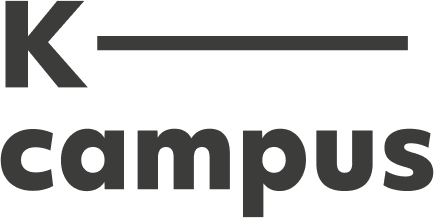![Kim Chan-hyuk, a professor at KAIST's department of biological sciences, center, works with his students at his lab. [KIM SUNG-TAE]](https://uploaded.kcampus.kr/20231121_84142034_27b4f691a4.jpg)
Although KAIST and Pohang University of Science and Technology (Postech) aren't included in the comprehensive JoongAng Ilbo university rankings, both took the top spots in natural science and technology fields, respectively.
KAIST came first in the natural science rankings announced Monday, followed by Sungkyunkwan University. Seoul National University and Postech tied for third place, with Korea University and Yonsei University tied for fifth place.
Hanyang University came seventh, followed by Ulsan National Institute of Science & Technology, also known as Unist, Dongguk University and Konkuk University.
The 2023 JoongAng Ilbo university rankings were released on Monday. The comprehensive rankings only analyze schools that offer degrees in at least four out of the six major academic fields, which are humanities, social sciences, natural sciences, arts and physical education, engineering and medicine. Universities like KAIST and Postech that focus on science and technology or other specific fields are excluded from the comprehensive rankings but included in separate assessments of natural sciences and technology fields.
The science assessment looked at 40 universities, and the engineering assessment looked at 48 universities.

According to the JoongAng Ilbo, KAIST's support for joint research is one of the factors that gave it high points in the science assessment. The amount of research grants received by professors and articles published in international journals are counted toward the ranking's faculty research criterion.
"The active communication between researchers and the overall environment that encourages professors to start their own business is one of the factors that makes KAIST attractive," Kim Chan-hyuk, a professor at KAIST's department of biological sciences, said.
Kim was able to transfer technology for immunotherapy treatment for Alzheimer's to a pharmaceutical company. Although Kim's previous works focused on oncology, he was able to expand the scope of his research to Alzheimer's by working with Chung Won-suk, another professor in the university's biological science department.
The university also has an on-campus patent attorney who helps with technology transfers. Generating revenue of 6.9 billion won last year from technology transfers ($5.36 million), the university comes in second for revenue per transfer.
"Science research is greatly influenced by the equipment a university has, and human resources are very important for applied sciences, so we invest hundreds of millions of won into each lab," Jeon Hyo-ri, head of the university's management strategy team, said. "We also encourage professors to start their own businesses so their research can be commercialized."
In the engineering field assessment, Postech ranked first, followed by KAIST.

Hanyang University ranked third, followed by Sungkyunkwan University and Yonsei University. Seoul National University came sixth, followed by Unist, Korea University, Kyung Hee University and Gwangju Institute of Science and Technology, also known as GIST.
Postech's support for joint research is one of the reasons it scored well in the faculty research criterion.
The university has a joint appointment system, where all of its professors are affiliated with two or more departments to facilitate interdisciplinary research.
It also plans to designate more than 20 percent of its faculty as professors focused on industry-academia cooperation in the next five years.
The university ranked first in revenue from industry-academia cooperation per professor, also counted toward the faculty research criterion. KAIST came second, followed by Seoul National University, Kookmin University and Unist.
Although GIST ranked 10th in the overall engineering assessment, it took the top rank for the amount of financial aid offered to undergraduate students, which is taken into consideration for the assessment's educational environment criterion.
KAIST came second for financial aid, followed by Unist, Postech and Korea University of Technology and Education.
At GIST, one undergraduate student had to pay an average tuition of 2.1 million won per year this year but received a financial aid package of 5.5 million won on average. Also, all international undergraduate students at GIST receive full tuition for eight semesters and a 200,000-won settlement stipend when they first come to the university.
BY LEE HOO-YEON, LEE GA-RAM, KIM SEO-WON, LEE TAE-HEE [lee.taehee2@joongang.co.kr]





